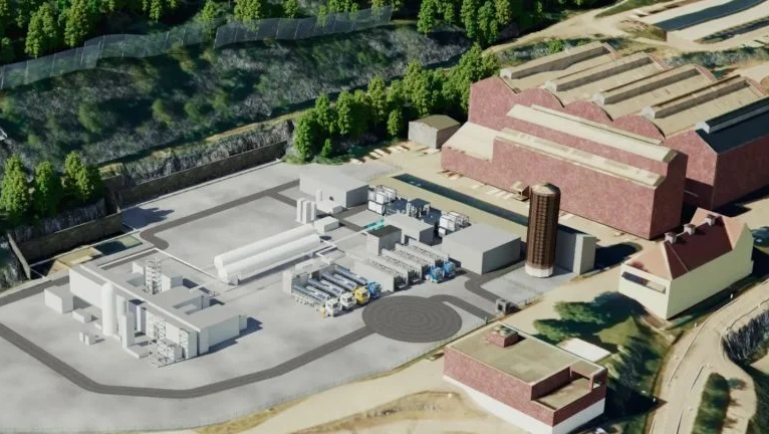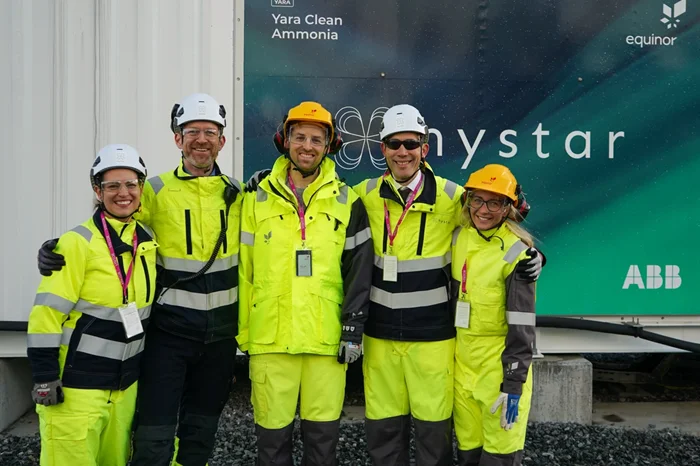Japanese technology conglomerate Hitachi holds a 80.1% ($6.85 billion) stake in Hitachi ABB Power Grids, while Zurich-based ABB will hold the remaining 19.9% stake. ABB also holds a pre-defined option to exit the retained 19.9% shareholding three years after closing, and it is likely it will be bought out by Hitachi, which has said it will consider acquiring ABB’s share to make it a wholly owned subsidiary after 2023.
But for now, Hitachi ABB Power Grids will be headquartered in Switzerland and employ approximately 36,000 people in 90 countries. It will be chaired by Toshikazu Nishino, executive vice president of Hitachi, and ABB’s Claudio Facchin will serve as its CEO. In a press release on July 1, the new company also said that “the current management team will ensure business continuity.”
An Expanded Focus for Power Grids
The official launch of the the joint venture has been anticipated for 18 months, and it was accomplished despite stalled activities owing to COVID-19. While Hitachi and ABB first announced that Hitachi would acquire the majority stake of ABB’s Power Grids in an $11 billion deal in December 2018, the companies have been awaiting regulatory approvals, such as from the European Commission (EC).
The European Union’s (EU’s) executive arm cleared the deal under the EU Merger Regulation on May 29, finding it would raise no competition concerns because Hitachi’s activities in the power grid are limited to a geographic focus on Japanese and Chinese markets. “In addition, the horizontal overlaps between the activities of the companies are limited, and increments in vertical links are small,” and a number of strong players would remain in the market after the merger, the EC said.
Now finalized, the deal allows Hitachi ABB Power Grids to take the helm of all four of ABB’s major grid businesses: Grid Automation; Grid Integration—including ABB’s high-voltage direct current systems and power semiconductors; High Voltage Products, including gas-insulated switchgear; and Transformers. It will also take over ABB’s brand-name reputation in the power sector, specifically pertaining to the development, engineering, manufacturing, and sale of products, systems, software, and services, and projects.
The new company, however, will also leverage Hitachi’s digital solutions portfolio, enabling it to expand further into utilities, mobility, smart cities, and energy storage, as well as the industrial internet of things (IIOT).
Hitachi ABB Power Grids begins operations with $1.32 million in capital, 100 manufacturing sites, and 200 sales sites. Hitachi may reveal more about the new company’s financial status in March 2021. According to ABB’s disclosures of businesses that have been discontinued since December 2018, the Power Grids business (along with its other discontinued businesses) brought in $9 billion in fiscal year-end December 2019 total revenues.
Hitachi, however, is optimistic about the new company’s expanded prospects. “The power grid market is worth around US$100 billion in 2020,” the company noted in a press release on July 1. “Markets related to digital utilities, such as predictive maintenance, distributed power supply and asset optimization are expected to grow strongly.”
Hitachi Eyes New Prospects in Energy
According to Hitachi’s Nishino, the acquisition of ABB’s Power Grids business is a natural evolution for Hitachi. Though the company has in recent years embarked on a cautious approach in the power sector, it has increasingly centered efforts on explosive demand in digitalization solutions.
Earlier this year, for example, Hitachi announced it would withdraw from Mitsubishi Hitachi Power Systems (MHPS), a joint venture it established in 2014 with another power equipment giant, Mitsubishi Heavy Industries. Meanwhile, as Hitachi Ltd.’s President and CEO Toshiaki Higashihara outlined the company’s core business fields in an earnings call at the end of May, he stressed that digitalization of the grid and promotion of efficient power consumption via data centers and electric vehicles will be a major focus.
Higashihara also pointed out that Hitachi is banking heavily on promotion of its Lumada digital solutions, services, and technologies offering—and suggested that business may benefit from the acquisition. “Through Hitachi ABB Power Grids, Hitachi further strengthens Lumada’s presence in the market by incorporating energy solutions into the platform, allowing the company to provide even more advanced digital solutions to Hitachi’s customers to realize sustainable society,” he said.
Finally, the joint venture also furnishes Hitachi with a new “global business model,” that comes with a “diverse group of talent,” said Higashihara.
Divestment of Power Grids Marks a New Era for ABB
For ABB—a company that pioneered high-voltage direct current (HVDC) transmission links in 1954, a succession of related technologies, including for grid automation and integration, as well as innovations in transformers—the divestment of its Power Grids business marks “an important turning point” in its long history.
Though Power Grids had for years accounted for “more than a quarter of ABB’s revenue,” the company in 2018 made the significant decision to shift away from power transmission and large-scale infrastructure projects and toward a more simplified business model and operational structure to focus efforts on streamlining core businesses and aligning them with customer operations.
Its decision was partly rooted in changing customer needs in the utility and industry sectors, the company explained in early 2019: “The utility customer base is consolidating, and we see a re-convergence of power generation and power grids. Increasing project sizes for and changes in the commercial pattern of utility customers also often require suppliers like ABB to provide access to project financing.”
“We believe Hitachi is the best owner for Power Grids and its next stage of development, building on the solid foundation achieved under ABB’s previous ownership,” said Peter Voser, chairman of the Board of Directors of ABB on July 1. One reason Hitachi made an ideal partner was because it was committed to retaining Power Grids employees and retaining its headquarters in Switzerland, ABB noted.
Since ABB announced its intention to divest Power Grids to Hitachi, the company has made significant progress in “becoming a more customer-focused and simplified organization,” Voser said, even if it took a financial hit. According to the company’s latest annual report, income from ABB’s operations fell $1.9 billion in 2019, affected by the “most wide-ranging internal reorganization” since ABB was formed from the merger of ASEA AB of Sweden and Brown Boveri AG of Switzerland in 1988, it said. But by the end of last year, the company had established a “lean corporate center” with only four vertically integrated businesses: Electrification; Industrial Automation; Motion and Robotics; and Discrete Automation.
While the company will now work to increase the value of those businesses, the company will also use net cash proceeds from the divestment for a share buyback program. Consistent with ABB’s capital structure optimization program, it plans to return to shareholders net cash proceeds of $7.6 billion to $7.8 billion from the sale of Power Grids. “ABB initially intends to launch a share buyback program of 10% of the company’s issued share capital shortly after the release of its second quarter 2020 financial results,” it said.
The divestment also better positions ABB for a stronger focus on industrial customers, noted ABB CEO Björn Rosengren. “Leveraging our technology leadership and passion for innovation, we will now focus on creating superior value for our customers, employees and shareholders,” he said.
“We will do this by evolving our decentralized business model, strengthening our performance management culture and driving active portfolio management.”







